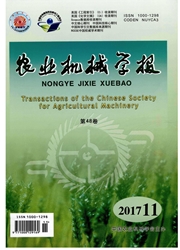

 中文摘要:
中文摘要:
基于有机朗肯循环(Organicrankinecycle,ORC)设计了柴油机排气余热回收系统。建立了ORC热力学仿真模型预测系统回收性能,并对某款柴油发动机在有、无ORC作用下分别进行试验,对比了试验数据与仿真结果,验证了模型的有效性。将模型应用于不同工况下,观察不同工质流量对ORC净功率及热效率的影响,结果表明ORC净功率随着转速的增加而增加,不同工况下最大热效率均为12.1%,且对应的工质流量选择区间随着转速的提高而扩大,此区间的确定可为ORC试验时工质流量范围的选择提供参考依据。
 英文摘要:
英文摘要:
A diesel engine exhaust heat recovery system was designed based on organic rankine cycle. Using the thermodynamics model the performance of the system was predicted, and then a diesel engine with and without the exhaust heat recovery system was experimented to validate the performance of the model. The ORC net output power and thermal efficiency were estimated under variable conditions or different working fluid mass flow rates by using the model. The results showed that the net output increased with increasing engine speed. The maximum thermal efficiencies were the same as 12.1% at the different engine speeds, and the best working fluid mass flow rates range for the exhaust heat recovery system was obtained.
 同期刊论文项目
同期刊论文项目
 同项目期刊论文
同项目期刊论文
 期刊信息
期刊信息
